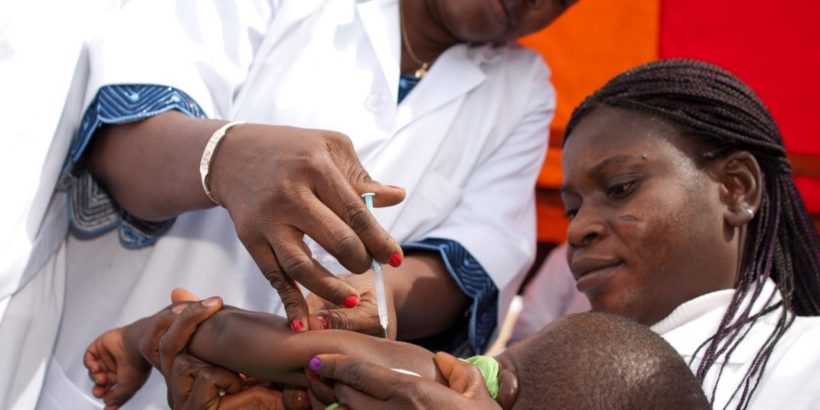Ever heard of a conjugate vaccine? You may have heard of one that prevents a key cause of pneumonia (the pneumococcal conjugate vaccine, PCV), or maybe one that stops a type of meningitis (meningococcal A conjugate vaccine, also known as MenAfriVac®). But what exactly are conjugate vaccines, and why are they important for tackling diseases like typhoid?
A brief review of vaccinology
Vaccines are weakened or killed pathogens (virus, bacteria, or parasite that causes human disease) or a modified part of a pathogen. Although the vaccine does not cause disease, it helps your immune system recognize the pathogen and develop a defense—immunity—against it. This immunity can last a long time and should protect you against infection or illness in the future.
There are many ways to make pathogens into vaccines. Take, for example, typhoid, which is caused by a bacteria called Salmonella enterica serovar Typhi. One type of typhoid vaccine, called a Vi capsular polysaccharide vaccine, contains chains of identical sugar molecules (polysaccharides) from the surface of the Salmonella bacteria. This is a “subunit” vaccine because it does not contain the whole pathogen; just a part that is large enough to be recognized by your immune system.
These vaccines work well against a lot of different types of infections, but every pathogen is unique and the same modification process may not work for all pathogens. Additionally, our immune systems change as we grow. This means a polysaccharide vaccine like the current Vi capsular polysaccharide typhoid vaccines works in older children and adults, but does not work as well in infants. This leaves a large gap in protection, especially for infections that commonly occur in infancy.
[…] To read the rest of this blog, go to Vaccines Work!



